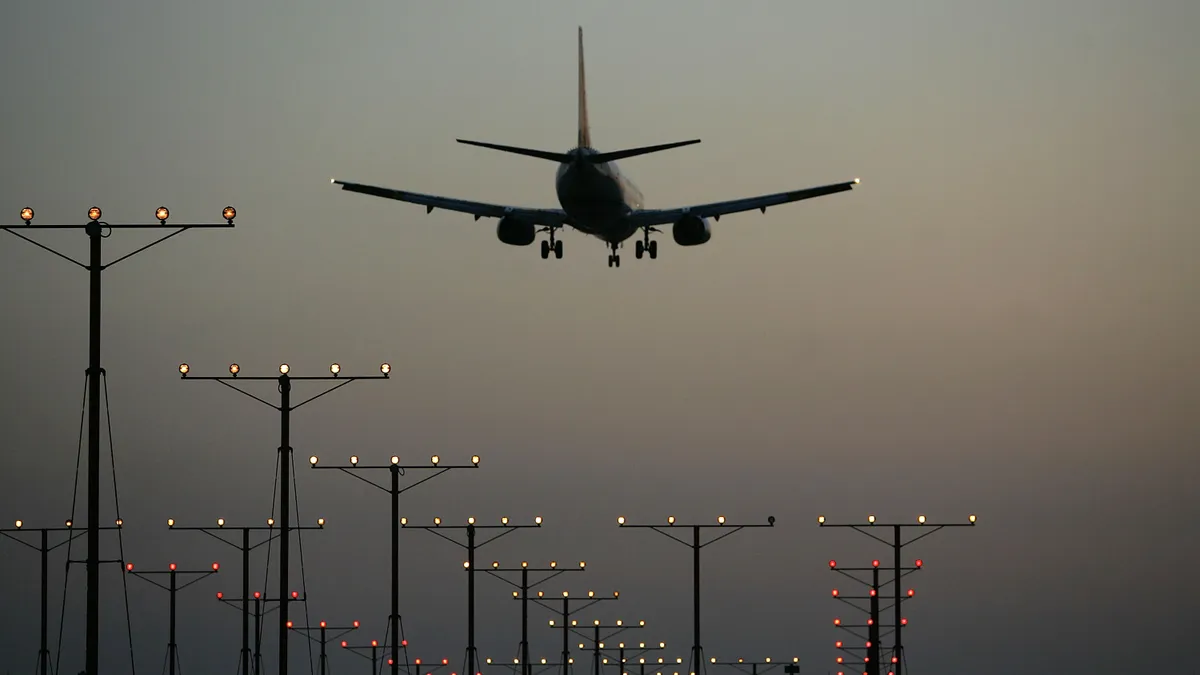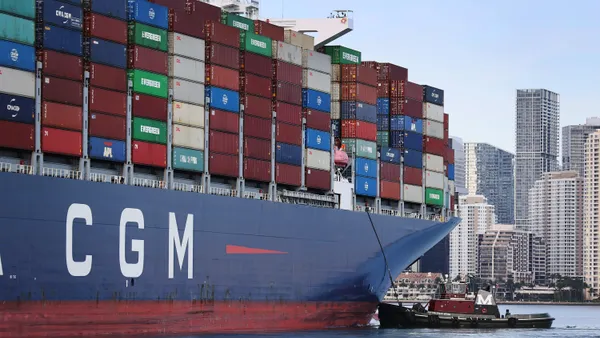Dive Brief:
- Air cargo volumes fell 9% YoY in July, continuing a downward trend as global uncertainties and a shift back to ocean transport weigh on demand, according to a news release from Clive Data Services on Wednesday.
- Airfreight rates have also dropped, helped by added transatlantic capacity. But they remain elevated versus pre-pandemic levels — January rates were up 156% versus 2019, while July rates were 121% higher than in 2019.
- "There are many dark clouds hanging over the air cargo industry given the state of the world right now," said Niall van de Wouw, chief airfreight officer at Clive parent company Xeneta, in a statement. “...From a rates point of view, indicators suggest the market has yet to bottom out.”
Dive Insight:
The "dark clouds" contributing to air cargo's slide in demand since March include the ongoing war in Ukraine, inflationary pressures limiting consumer spending and staffing shortfalls for airlines and airports, according to van de Wouw.
But shippers are also shifting more volume away from the fast-but-expensive transport mode as ocean freight congestion eases on some lanes. Global schedule reliability improved YoY in June, the first time this has occurred since the pandemic began, per Sea-Intelligence data.
Ports in China appear to have returned to normal operations while U.S. West Coast congestion lessened in Q2, C.H. Robinson President and CEO Bob Biesterfeld said on a July 27 earnings call. With more shippers sticking with ocean transport, the 3PL’s airfreight business saw a 6% YoY drop in metric tons shipped in Q2.
"Much of our air freight volume is driven by ocean conversions. We'd expect a bit of slowing there as well through the balance of the year," Biesterfeld said. With more shippers sticking with ocean transport, C.H. Robinson's international airfreight business saw a 6% YoY drop in metric tons shipped in Q2.
Air freight volumes also fell in Q2 for DHL Global forwarding, "in part due to modal shifts back towards ocean freight products, as customers recognized the again improved schedule reliability in ocean freight," according to a news release.
Shippers have committed to less expensive transport options, like ocean shipping, to reduce the impact of freight costs on their bottom line even with air cargo rates falling. Electric vehicle manufacturer Nikola has begun using ocean freight to move most of its components after spending around $8.3 million in air transport in Q2, CFO Kim Brady said on an earnings call.
Although airfreight helped speed up deliveries, it wasn't enough to mitigate supply chain issues elsewhere. Supplier delays in delivering battery packs caused two weeks of lost production at its manufacturing facility in Coolidge, Arizona and led Nikola to receive more components than it used in production for the quarter.
"To reduce our freight cost burdens going forward, we have started shifting the shipment of most of our components to ocean freight," Brady said. "We are also accelerating our localization efforts of certain components from the EU to North America.”














